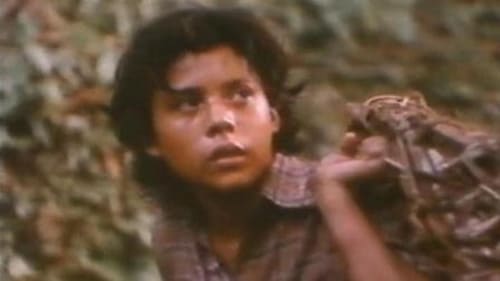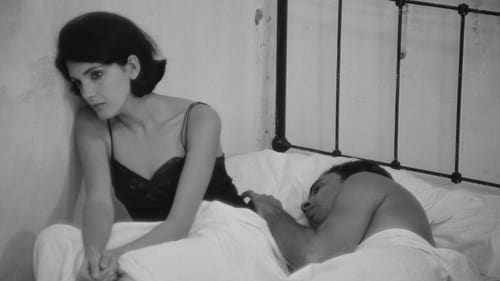
Silvio Rodríguez learned to play guitar secretly during his military service. After 45 years of career, he's still in full musical activity and maintains his commitment to culture through their studio, Ojalá, and initiatives such as "La gira por los barrios", in which Silvio, barely advertised, performs in the most disadvantaged neighborhoods of Havana.

Music

Music
페드로(Pedro: 마르코 레오나르디 분)와 리타(Tita: 루미 카바조스 분)는 서로 사랑하는 사이이다. 페드로 아버지는 리타 어머니에게 두 사람의 결혼을 청하나 거절당한다. 이유는 멕시코 명문가에서는 막내딸은 결혼은 못하고 어머니를 돌보도록 하는 풍습이 있는데 리타는 막내딸인 것이다. 리타 어머니는 리타보다 두살위인 언니 로사우라(Rosaura: 야렐리 아르즈멘디 분)와 결혼할 것을 제의한다. 페드로는 한집에서 같이 지낼 수 있다는 생각에 언니와의 결혼을 승락한다. 리타는 음식을 만들어 사람의 감정을 전달하는 신통력을 가지고 있다. 페드로와 언니 결혼식날, 케이크를 먹은 하객들은 불행한 결혼을 아는듯 눈물을 흘리고 토하게 된다. 그리고 페드로가 선물한 장미로 만든 장미꽃 소스를 통해 진정한 사랑의 마음을 전달하게 되고 큰 언니 헤루트루디(Gertrudis: 클라우뎃 마일레 분)는 열정을 못참고 집을 뛰쳐나가 혁명가의 아내가 된다. 로사우라의 난산으로 오게 된 브라운 박사(Doctor John Brown: 마리오 아반 마티네즈 분)는 리타를 보고 사랑을 느끼게 된다. 엘레나 부인(Mama Elena: 레지나 토르네 분)은 리타와 페드로 사이가 심상치 않음을 알고 페드로 부부를 삼촌집으로 보낸다. 로사우라의 아들이 전염병으로 죽었다는 소식을 들은 리타는 미치게 되어 브라운 박사 집에서 치료를 받게 된다. 둘은 사랑을 느끼게 되어 리타는 브라운 박사의 청혼을 받아들인다. 한편 엘레나 부인은 반란군이 침입해 저항하다 사망한다. 리타는 비로소 엄마의 비밀을 알게 되는데...

Music
A man is released from prison, and after 18 years, returns to his village. But in this village, time, in many ways, has stood still. The time served by Juan complied with the court's justice, but not with some villagers. There are some who still seek true justice.

Music
The first years of the Cuban Revolution characterized by social transformations and class struggles.

Original Music Composer
A theater director and script-writer falls for a female worker from the Havana docks, but his machismo, social and working conflicts, and the Cuban woman's condition interfere with their relationship.

Music

Music
Alsino, a boy of 10 or 12, lives with his grandmother in a remote area of Nicaragua. He's engulfed in the war between rebels and government troops when a US advisor orders the army to open a staging area by the boy's hamlet. Alsino tries to be a child, climbing trees with a girl, looking through his grandfather's trunk of mementos and trying to fly; he goes to town to sell a saddle, has his first drink and is taken to a brothel. But the war surrounds him. The US advisor takes Alsino on a chopper flight, but he's unimpressed. The soldiers' cruelties awake rebel sympathies in Alsino, and after an army assault backfires, the lad is fully baptized into the conflict.

Music
In 1914, during World Ward I, Amada, a bourgeois wife, falls in love with her cousin Marcial, a young idealist who is fighting against the Cuban regime in power.

Music
Mexican drama film directed by Miguel Littín. It is based on a short story of the same name by Gabriel García Marquez. It was entered into the 30th Berlin International Film Festival

Music
A bourgeois Cuban family of aristocratic origin locks itself into its mansion when the Cuban Revolution comes to power, waiting for the new regime to be overthrown. As time passes, they regress to older and older systems of policital order, from capitalism to feudalism to "primitive savagery."

Original Music Composer
Set in the early 1900s, this film charts the rule of a Latin American dictator as he moves from being a charming despot to a tyrannical ruler before he is finally ousted, only to die in obscurity in Paris. Early in his regime, the resources and agricultural products his country sells command high prices, and he is a reasonably confident, even gentle, ruler who likes to take long vacations with his daughter in Paris. After World War I, with falling prices and a number of coup attempts behind him, his rule becomes quite cruel.

Music
Based on the events leading to the Spanish-America War of 1898. It reflects on the expansionist policies of the United States since its inception. A historical chronology that shows the consequences for Puerto Rico of the imperialist war against Spain: colonization and relentless attempts to annex it to the States.

Music
Follows the Cuban leader into the home of a 93 year old acquaintance of Jose Marti, who is now blind and who takes the duration of the film to realize who his illustrious interviewer actually is.

Music
The story of the Santa María School massacre of miners in 1907.

Original Music Composer
A pious plantation owner attempts to teach Christianity to 12 of his slaves by inviting them to participate in a reenactment of the Last Supper.

Music Arranger
The short film El primer delegado (The First Delegate), made by a group of ICAIC directors, recounts the moments in which José Martí announced the foundations and statutes of the Cuban Revolutionary Party, the tireless struggle that the hero sustained throughout his life to obtain independence, his gifts as a political organizer, the final founding of the party, of which he was the first delegate, and his offer to General Máximo Gómez of the military leadership of the insurrection, the final founding of the party, of which he was the first delegate, and his offer to General Máximo Gómez of the military leadership of the insurrection, all narrated live by an announcer who entertains with his reading the work of the cigar makers in a tobacco factory, until the documentary reaches its final climax: the symbolic reconversion of the old Marti's party into a new one.

Music
1964, in the Escambray mountains: the area is infested with counter- revolutionary bands which are trying to spread terror among the population and re-establish contact with the US, CIA. The murder of a man led to a reprisal to wipe out the bandits.

Music
In 1672 Cuban revolutionaries launch an uprising against the Spanish who are occupying the country.

Music
This film confronts the failures of the Cuban economy, although it is made in a Guevara-like spirit of moral exhortation rather than criticism.

Original Music Composer
루시아는 각각 다른 시대적 상황을 배경으로 여성해방의 문제를 그린 3부작 옴니버스 영화로, 주인공들의 이름이 모두 루시아다. 1부에서 라파엘을 죽인 루시아는 끌려가던 거리에서 “쿠바는 깨어나라”고 외치는 한 미친 여자에게서 위로를 받고, 2부에서 독재자 바티스타 정권에 넘어간 암울한 극적 분위기를 마무리하는 것은 카메라를 쳐다보는 루시아의 눈이며, 3부에서 혁명군에게 글을 배운 문맹의 루시아가 처음으로 쓴 문장은 “난 떠나요. 난 노예가 아니에요”다. 이렇듯 혁명 이전과 이후 해방의 분위기 속에서도 해방된 삶을 살고 있는 건지 의심스러운 여러 루시아들의 삶을 극적으로 그려내고 있다. 토마스 구티에레즈 알레아 감독과 더불어 현대 쿠바영화의 거장인 움베르토 솔라스 감독은 각 이야기의 시대와 주제에 따라 영화의 스타일을 달리했다. 1890년대의 이야기는 멜로드라마로, 1930년대에는 복고풍의 화면으로, 마지막 1960년대의 이야기는 가벼운 코미디로 그려냈다. 2시간 40분이라는 만만치 않은 상영시간 동안 그는 파노라마처럼 시대의 변화를 담아낸다. 그것을 결국 역사의 흐름이 ‘진보’쪽에 있었음을 능숙하게 설득시킨다. 1960년대 말의 쿠바영화가 고전기 할리우드 혹은 구소련 영화와 맞먹는 형식미를 보여주는 걸작이다.

Music
In December 1967 a Cuban film crew led by Santiago Alvarez, the veteran polemicist, traveled to Hanoi. They shot the footage which constitutes this short documentary all in one day - Tuesday 13. The film is the story of that day, and what happened to the North Vietnamese people in the course of it.

Music
젊은 부르주아 세르지오의 이야기. 혁명이 몰아 닥치고 가족들이 쿠바를 떠나는 상황에서 그는 쿠바 안에 남기로 결심한다. 혼자가 된 세르지오는 삶의 이유를 찾기 위해 자신의 어린 시절, 가족, 연인 그리고 불행들과 같은 과거를 기록하기 시작한다. 혁명은 점점 그에게 도전으로 다가선다. 모든 것은 '10월 위기'동안에 끝나버린다. 세르지오는 그가 받은 모든 교육과 가치가 산산이 부서지는 것을 발견하는데...

Music
This is a montage of different images from the JFK, Martin Luther King and Bobby Kennedy triumphs and assassinations, all three events being observed by Lyndon Johnson as the dark figure who is plotting the anti-black rights movement.

Original Music Composer
A young man attempts to fight the system in an entertaining account of bureaucracy amok and the tyranny of red tape. Restored by the Academy Film Archive and the Instituto Cubano del Arte e Industrias Cinematográficos in 2019.

Music
Pedro is a young peasant who leaves home to join the Rebel Army, based in Sierra Maestra.

Music
A film about the Cuban Revolution told from three different perspectives.





















